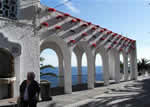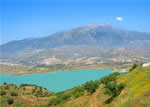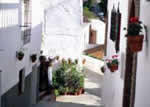
A group of visionary French football administrators, led in the 1920s by the innovative Jules Rimet, are credited with the original idea of bringing the world's strongest national football teams together to compete for the title of World Champions.
The original gold trophy bore Jules Rimet's name and was contested three times in the 1930s, before the Second World War put a 12-year stop to the competition.
When it resumed, the FIFA World Cup rapidly advanced to its undisputed status as the greatest single sporting event of the modern world. Held since 1958 alternately in Europe and the Americas, the World Cup broke new ground with the Executive Committee's decision in May 1996 to select Korea and Japan as co-hosts for the 2002 edition.
Since 1930, the 16 tournaments have seen only seven different winners. However, the FIFA World Cup has also been punctuated by dramatic upsets that have helped create footballing history – the United States defeating England in 1950, North Korea's defeat of Italy in 1966, Cameroon's emergence in the 1980s and their opening match defeat of the Argentinean cup-holders in 1990….
Today, the FIFA World Cup holds the entire global public under its spell. An accumulated audience of over 37 billion people watched the France 98 tournament, including approximately 1.3 billion for the final alone, while over 2.7 million people flocked to watch the 64 matches in the French stadium.
After all these years and so many changes, however, the main focus of the FIFA World Cup remains the same – the glistening golden trophy, which is the embodiment of every footballer's ambition.
Golden Shoe Award
The world adores goal scorers, the men who thrill the crowds in the stadium and the countless millions watching at home on TV with their prolific exploits at FIFA World Cup finals. The leading striker at every tournament is awarded the Golden Shoe, an accolade won by some of the all-time greats over the long history of the event.
France star Just Fontaine and German ace Gerd Muller rate as the record-holders at FIFA World Cup final tournaments. Fontaine struck an incredible 13 goals at the 1958 FIFA World Cup Sweden, a record which stands to this day. German legend 'Der Bomber' Muller stands out on his own with a total of 14 goals at two finals, ten at the 1970 FIFA World Cup Mexico and a further four at the tournament in Germany four years later. Top scorer in worldwide qualification, Jared Borgetti of Mexico with an impressive 14 strikes.Of the current generation, Brazil striker Ronaldo has Muller and Fontaine's records firmly in his sights.
The Real Madrid front man topped the scoring charts at the 2002 FIFA World Cup Korea/Japan with eight goals. 'O Fenômeno' thus ended a 28-year stretch during which the leading scorer at the finals had netted no more than six goals. Ronaldo now has 12 finals goals to his name, catching up with the legendary Pele and closing in fast on Muller's record.
The 2006 FIFA World Cup Germany is certain to produce another deadly superstar destined for global fame. Ronaldo netted ten times in qualifying, bettered only by Portugal's Pedro Pauleta (11 goals) and the top scorer in worldwide qualification, Jared Borgetti of Mexico with an impressive 14 strikes
Famous Moments
The Hand of God was scored by Diego Maradona in the quarter-final match of the 1986 World Cup between England and Argentina, in Mexico City. The legacy of this event perhaps best symbolizes the rivalry between the two football teams.
Six minutes into the second half the score was 0-0. Maradona cut inside from the right flank and played a diagonal low pass to the edge of the area to team-mate Jorge Valdano and continued his run in the hope of a one-two movement. Valdano's return, however, was played slightly behind Maradona and reached England's Steve Hodge, the left-midfielder who had dropped back to defend.
Hodge tried to hook the ball clear but miscued the ball and it screwed off his foot and into the penalty area, towards Maradona who had continued his run. England goalkeeper Peter Shilton duly came out of his goal to punch the ball clear, with his considerable height making him clear favourite to beat Maradona to it. However, Maradona reached it first with the outside of his left fist. The ball rolled into the back of the net and, to the amazement of the English players, the referee allowed the goal!!





















